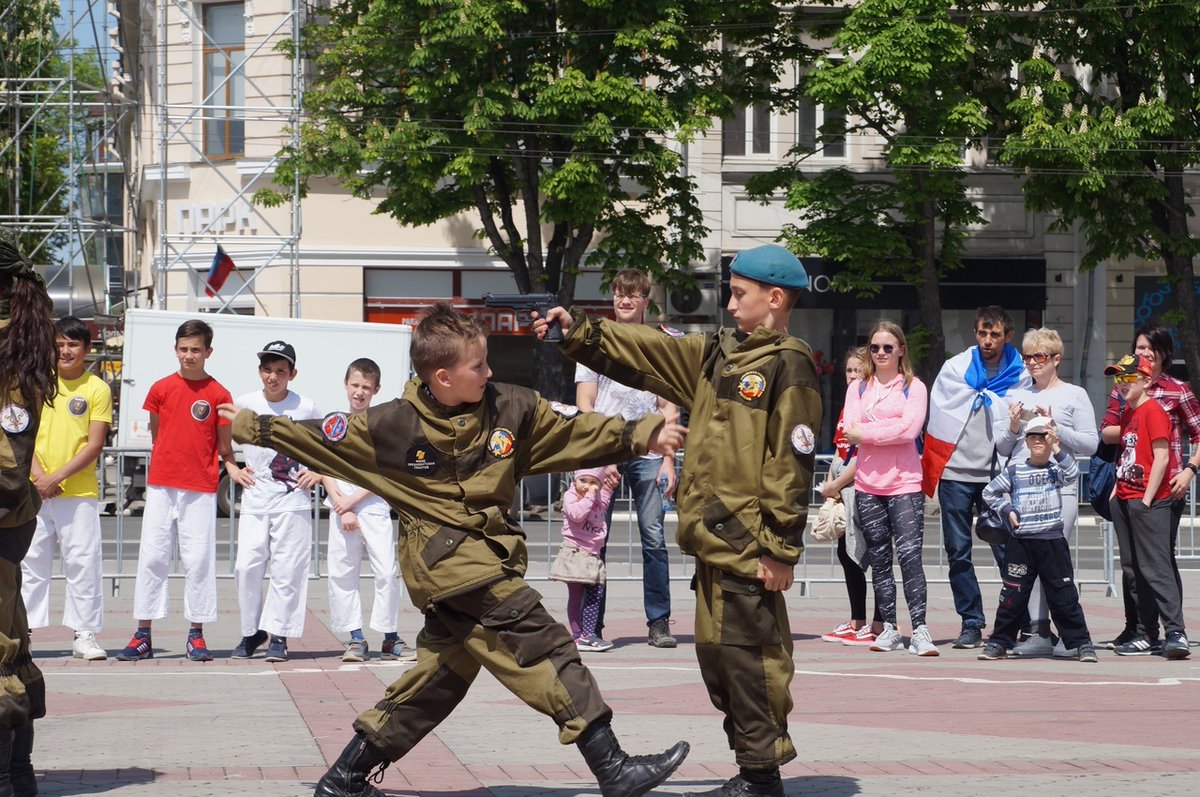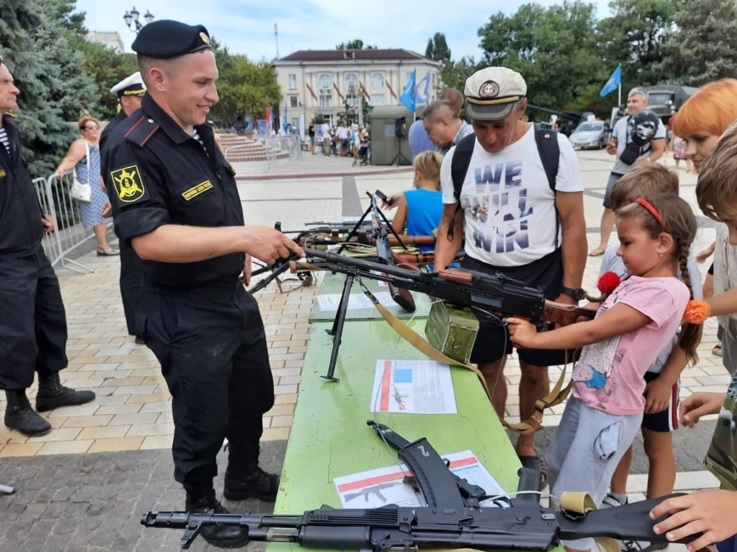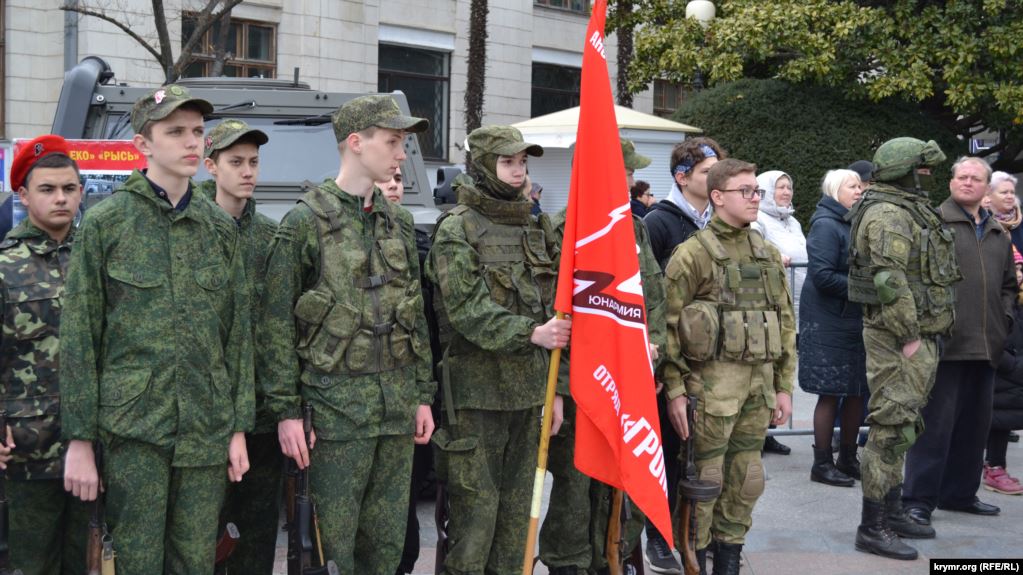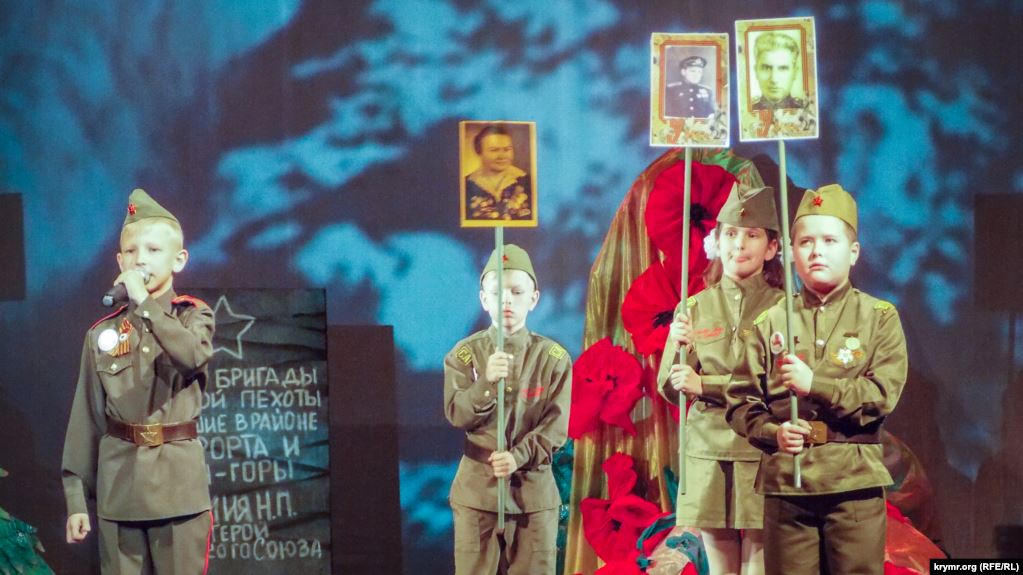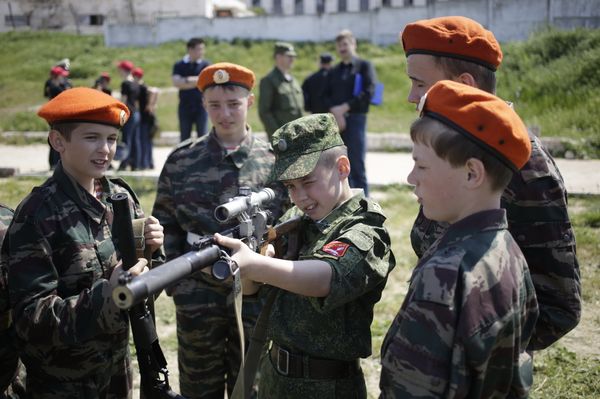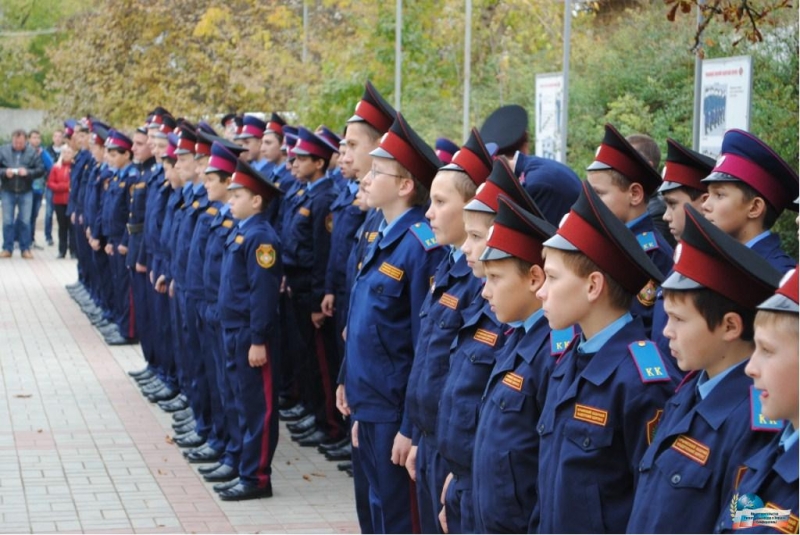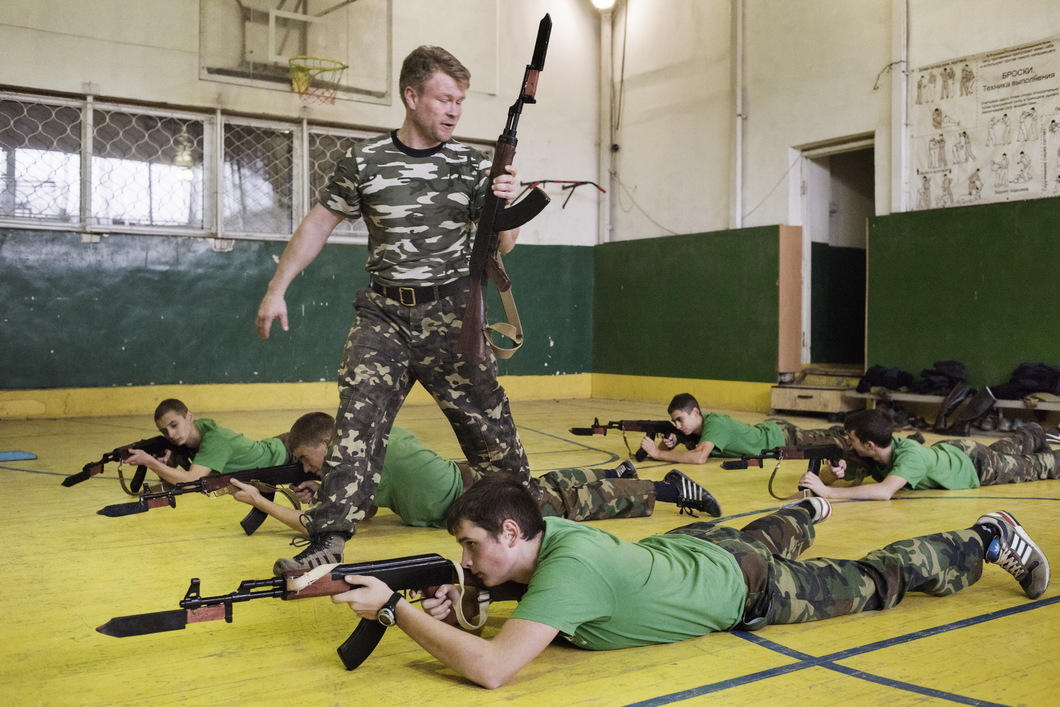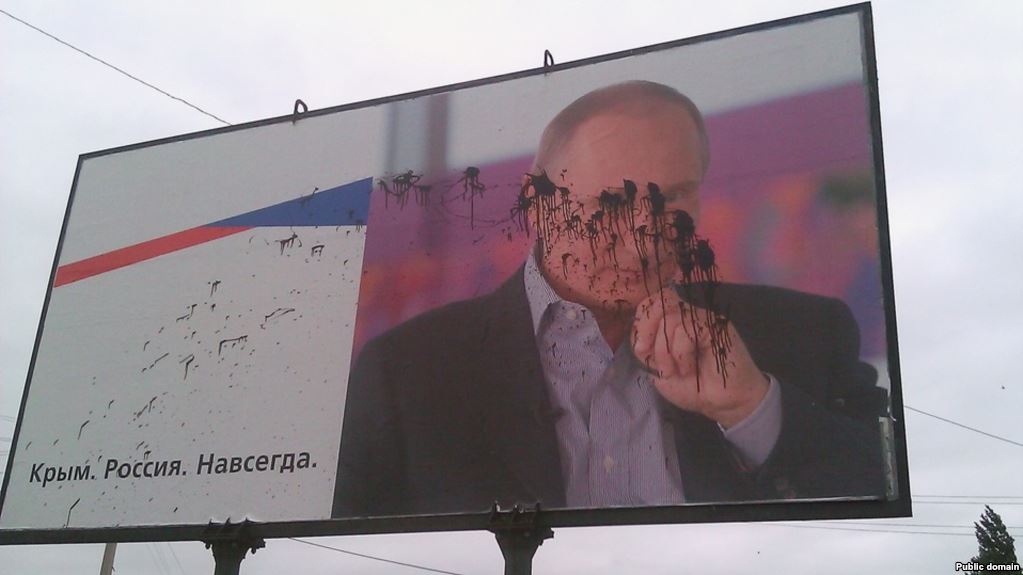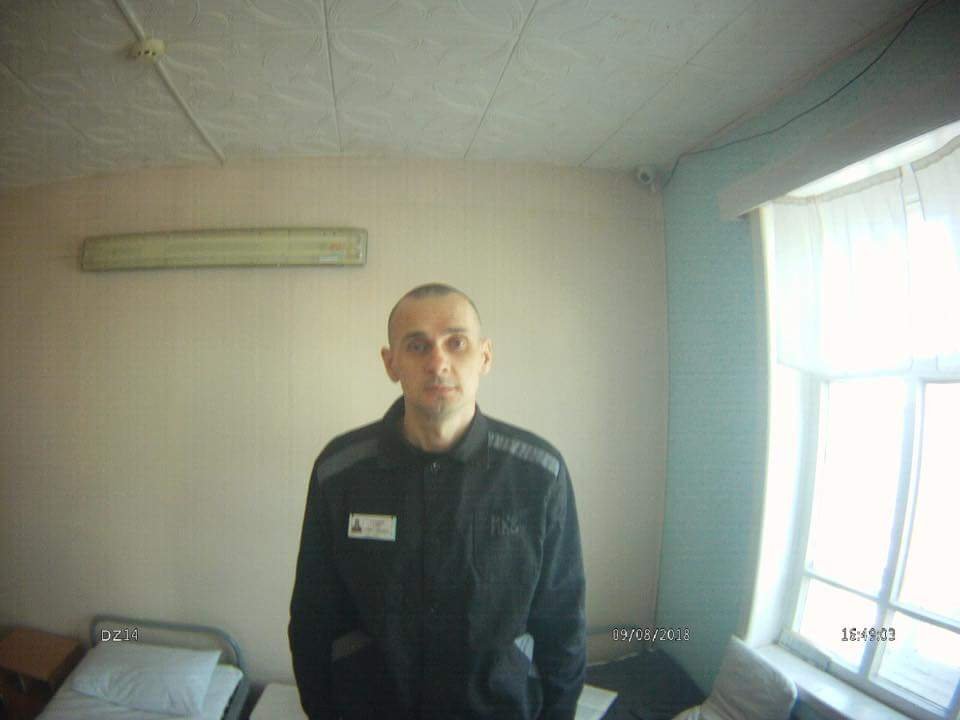The problem of the militarization of children and young people in Crimea is hardly a novelty. Soon after the Russian annexation of the Ukrainian peninsula, in 2014, the occupying authorities adopted Edict of the Head of the Republic of Crimea No. 522-U “On Approving the Concept of Patriotic and Spiritual-Moral Education of the Population in the Republic of Crimea” (December 18, 2014). One of the main tasks of the Concept is to improve military-patriotic education and form the foundations of patriotism and Russian identity among Crimean children (Docs.cntd.ru, accessed January 5, 2021).
This established educational system promotes combat training among Crimean children in order to prepare them for military service in the Russian Armed Forces, cultivates a hatred toward Ukraine, as well as applies all methods of misinformation and ideological military propaganda. The head of the Prosecutor’s Office of the Autonomous Republic of Crimea and the City of Sevastopol, Ihor Ponochovny (a Ukrainian government official), stated that Russian actions aimed at promoting military service in the Russian army among Crimean children can be qualified as a war crime under Article 8 (2) (a) (v) of the Rome Statute of the International Criminal Court (Zn.ua, October 1, 2020).
Olga Skrypnyk, who heads the Crimean Human Rights Group (CHRG), asserts that the problem of the militarization of Ukrainian children in Crimea has both legal and psychological aspects. Both preschool and school curricula help to influence the worldview of Crimean children, promote the values of the Russian World (Russkiy Mir), and propagandize in support of service in the Russian Armed Forces. Such a system undermines the Ukrainian national identity of children and deprives them of the opportunity to freely choose their identity.
One of the examples of propaganda work targeting this category of children is a special “Yunarmia Mentoring” program launched by the eponymous Yunarmia (“Youth Army”) military-patriotic movement in Crimea. This project also aims to promote military service among these children (Arc.construction, December 20, 2020).
According to information collected jointly by the Office of the Prosecutor General of Ukraine and the CHRG, the Russian Federation introduces and implements complex compulsory programs of military-patriotic education in all educational institutions in occupied Crimea for children from preschool age to adults. In particular, Russia has established numerous paramilitary and cadet classes in secondary schools (including cadet classes of the Russian National Guard and the Investigative Committee of the Russian Federation), cadet groups at kindergartens, Cossack detachments, branches of Yunarmia, as well as specialized military-patriotic camps. The CHRG has outlined that instruction within these organizations is usually conducted by regular (or former) officers of the Ministry of Defense of the Russian Federation (Zn.ua, October 1, 2020).
Trending Now
In 2020, already 2,505 students in Crimea (excluding Sevastopol) were enrolled in 109 cadet classes (Krymr.com, December 5, 2020). The children participate in drills and special physical training, take classes on the history of the Motherland (Russia), learn the basics of military affairs, absorb “lessons in courage,” and visit Spetsnaz (special forces) training centers. Many students in these cadet classes are issued and wear camouflage uniforms (E-zdravnitsa.ru, September 4, 2019).
Television also plays an important role in anti-Ukrainian propaganda and the militarization of children in Crimea.
At the same time, freedom of speech in Crimea has become critically curtailed. As monitoring by the CHRG shows, Ukrainian websites, radio stations and some satellite TV channels are constantly blocked to the peninsula’s residents (Zn.ua, May 15). Propaganda and militarization are also promoted through military games. In May, Sevastopol hosted the Zarnitsa children’s military-patriotic games, organized by the Night Wolves Russian motorcycle club. About 300 schoolchildren took part (Yugsn.ru, May 19). Another way to influence the impressionable, developing minds of Crimean children is to involve the Russian Orthodox Church in the process of spreading ideological and military propaganda. For example, priests take the oath of allegiance to Russia from the cadets of Cossack classes in Crimea. For children, religion, patriotism and Russian identity are thus linked together (Zn.ua, May 15, 2020).
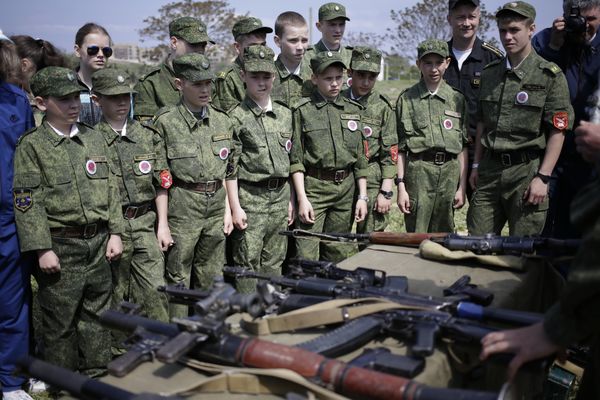
Despite numerous economic and ecological problems facing the annexed peninsula (see EDM, February 26, 2020, August 12, 2020, December 8, 2020), Crimea’s occupying authorities plan to continue to focus on this aggressive propaganda and the militarization of local youth over the coming year. Some of the children who are or will soon be exposed to these policies were already born under the Russian occupation; others, due to their age, were unable to decide whether to stay in Crimea or leave it following the annexation, and now they are unable to choose their educational system or language of instruction. Crimean schools today cultivate hatred toward Ukraine and love of Russia. From its side, Ukraine will have to continue to collect evidence of this militarization of childhood and appeal to the international community to take a stronger stand against such Russian policies.
Read More:
- How Russia militarizes minors in occupied Donbas
- Indoctrination campaign for kids reveals identity crisis of Kremlin’s proxy “republics” in Donbas (2017)
- Another terrorist training camp held at a Russian Orthodox Church near Moscow
- Terrorist youth camp set up at a Russian Orthodox Monastery near Moscow
- Donetsk-born teenager recalls years of her living in occupied city
- Moscow continues to prepare mercenaries for Ukraine
- Russian occupiers in Crimea increasingly targeting women and children
- Putin claims mounting crisis in occupied Crimea can be reversed by fresh water supplies under Azov Sea
- Baku’s success in using Turkish drones raises question: Could Ukraine use them against Russia in Crimea?
- Crimeans have tap water only six hours a day as all Russian attempts to hydrate occupied peninsula fail
- UNGA vote on militarization of Crimea highlights Moscow’s international isolation on Ukraine, Portnikov says
- International Criminal Court finally agrees to open case regarding war crimes in occupied Crimea and Donbas
- “Happiness of children” most important for Ukrainians, the least happy nation
- Is Crimea now costing Russia more than it is worth?

